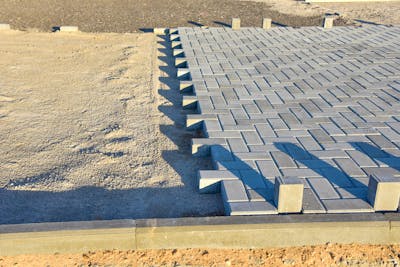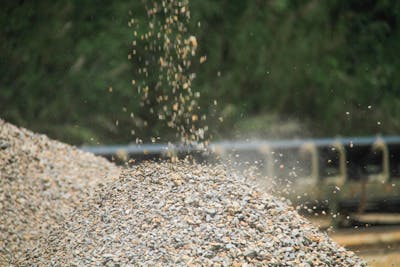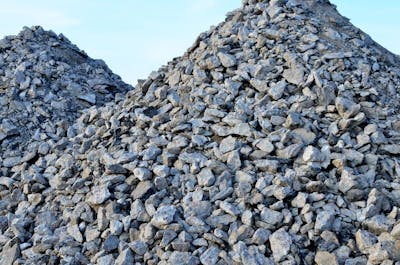Find the Best Crushed Limestone Services Near You
- Post a job
- Receive multiple quotes
- Choose your preferred crushed limestone service
Where do you need Crushed Limestone?
Describe your job and our suppliers will send you quotes
Crushed Limestone Suppliers on iseekplant
At iseekplant, we connect you with leading crushed limestone suppliers across Australia. Our extensive network ensures you find the ideal solution for your crushed limestone needs, whether for residential, commercial, or industrial projects. Our partners offer comprehensive services tailored to your project requirements.
Crushed Limestone Rates Guide
Below is a detailed guide on the estimated quarry and landscape crushed limestone supply prices per tonne:
| Aggregate Type | Quarry Supply Rate per Tonne (AUD) | Landscape Supply Rate per Tonne (AUD) |
|---|---|---|
| Limestone 19mm | $25 - $80 | $25 - $80 |
| Limestone 10mm | $23 - $75 | $23 - $75 |
| Limestone 6mm | $19 - $70 | $19 - $70 |
| Limestone 75mm (1st Grade) | $18 - $60 | $18 - $60 |
| Limestone 75mm (2nd Grade) | $31 - $60 | $31 - $60 |
| AG Limesand | $36 - $55 | $36 - $55 |
| Gypsum | $12 - $55 | $12 - $55 |
| Gabion Stone 75-150mm | $50 - $75 | $50 - $75 |
| Aggregate 20mm | $23 - $60 | $23 - $60 |
| Aggregate 10mm | $20 - $50 | $20 - $50 |
| General Fill (10mm Scalps) | $15 - $25 | $15 - $25 |
Note: All prices are estimates and may vary depending on the location and supplier.
Additional Costs to Consider When Sourcing Crushed Limestone and Other Aggregates
When sourcing crushed limestone and other aggregates, several additional costs may arise, depending on the project’s location, volume required, and logistical needs. These costs should be factored into your budget to ensure an accurate understanding of the total expenses involved.
| Additional Cost | Standard Rate (AUD) | Description |
|---|---|---|
| Delivery Fees | $10 - $50 per tonne | Costs for transporting materials from the quarry to the construction site. |
| Loading Fees | $50 - $150 per load | Charges for loading materials onto trucks or trailers. |
| Distance Surcharge | $2 - $5 per km beyond 50km | Additional costs for delivery beyond a set distance from the quarry (usually 50 km). |
| Handling Fee | $50 - $100 per order | Charges for processing and handling the aggregates at the supplier’s yard. |
| Fuel Surcharge | 5% - 10% of total cost | Additional fees to cover fluctuating fuel prices affecting transportation costs. |
| Material Disposal Fees | $20 - $80 per tonne | Costs for disposing of excess or unsuitable material during the project. |
| Custom Sizing Costs | Varies | Fees applied if the aggregate needs to be processed to specific sizes for specialised projects. |
| Environmental Levy | $5 - $20 per tonne | Charges for adhering to environmental regulations or to cover sustainable material sourcing. |
Note: Prices exclude GST and are subject to change based on fuel price fluctuations, distance, and other project-specific factors.
To get an accurate estimate for sourcing crushed limestone or other aggregates, remember to enquire about any other potential fees or charges that may apply to your project. Connect with one of our suppliers using our Get a Quote tool today and receive a detailed, tailored quote to suit your project’s needs!
Crushed Limestone Applications in Construction
Crushed limestone is a versatile material used in various construction and landscaping applications due to its stability and aesthetic appeal:
- Base Material for Roads and Driveways: Crushed limestone provides a stable foundation for roads and driveways. Its strong interlocking properties enhance structural integrity, making it a popular choice for these applications.
- Landscaping: Ideal for pathways, garden beds, and decorative features, crushed limestone adds both functionality and visual appeal. It helps improve soil drainage and provides a clean, polished look for landscape designs.
- Concrete Production: Crushed limestone is used as an aggregate in concrete mixes, improving its durability and strength. Its consistent quality ensures a uniform and reliable mix, making it a preferred material in the construction industry.
Safety and Technical Issues in Using Crushed Limestone
When handling and using crushed limestone, it's crucial to follow safety and technical guidelines to ensure effective and safe application:
- Storage: Crushed limestone should always be stored in dry conditions to prevent clumping and maintain its usability. Moisture can lead to material degradation and complicate handling.
- Handling: During handling, especially when loading, unloading, or spreading, wear appropriate respiratory protection to avoid inhaling dust. Dust inhalation can cause respiratory issues, so masks or respirators rated for fine particulates are essential.
- Application: Ensure proper ventilation during application, particularly in enclosed spaces, to prevent the accumulation of airborne dust. Using fans or opening windows can help maintain air quality and protect workers from potential respiratory hazards.
Other Quarry Products on iseekplant
In addition to crushed limestone, iseekplant offers a variety of other quarry products essential for construction and landscaping projects:
| Product | Description |
|---|---|
| Washed Sand | Used for concrete production and creating smooth finishes in construction projects. |
| Concrete Recycling | Provides recycled concrete for various applications, promoting sustainability and reducing waste. |
| Waste Disposal | Solutions for the efficient disposal of construction and demolition waste. |
| Soil Disposal | Proper disposal of excess soil from construction sites. |
| Topsoil | High-quality soil suitable for enhancing garden beds and landscaping projects. |
| Gypsum | Improves soil structure and drainage, particularly in agricultural settings. |
| Crushed Rock | Essential for road base and aggregate for concrete. |
| Road Base | Provides a stable base for roads and driveways, ensuring durability and longevity. |
| Sand Supplies | Various types of sand used for construction, landscaping, and industrial purposes. |
| Soil Supplies | Diverse soil types to suit different construction and landscaping needs. |
| Aggregate Supplies | A variety of aggregates for construction and decorative purposes. |
| Crushed Concrete | An eco-friendly option that offers sturdy material for construction bases. |
| Drainage Gravel | Used for managing water flow in civil and landscaping projects. |
| Landscaping Supplies | Includes everything from mulches and pebbles to larger landscaping rocks and boulders. |
Need Crushed Limestone for Your Project?
iseekplant connects you to Australia's premier crushed limestone suppliers. With our extensive network of leading providers, you're bound to find high-quality supplies tailored to your project's unique demands. Drop us a line at projects@iseekplant.com.au or ring us at 1300 691 912. If you're eager to jumpstart, hit 'Get a Quote' to post your quote request immediately.
Popular Crushed Limestone Locations
Become a supplier
How It Works
Crushed Limestone FAQs
Here are some frequently asked questions and tips on finding the right crushed limestone supplier for your job.
What do we have to offer?
Want to Know More?

Crusher Dust Vs Road Base: Which material is best in road construction?
Many products can be used as durable packing materials which create a co...

Crusher Dust Cost Guide 2022- Find best costs here
Crusher dust is a compacted material used for stabilizing surfaces. It ...

Crushed Rock Cost Guide 2022- Find suppliers | iseekplant
Crushed rock can be used for a number of purposes from driveway gravel,...

Concrete Recycling 101 - Can Concrete be Recycled?
Construction and demolition waste in Australia weighs 15.1 million tonne...
